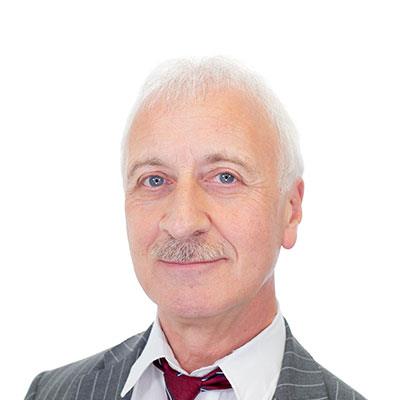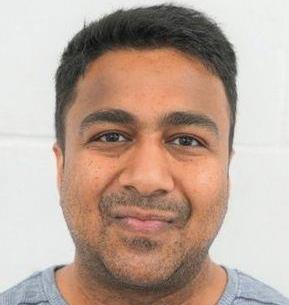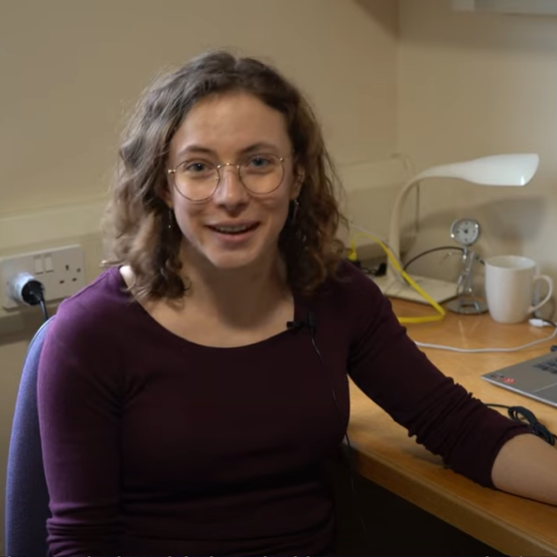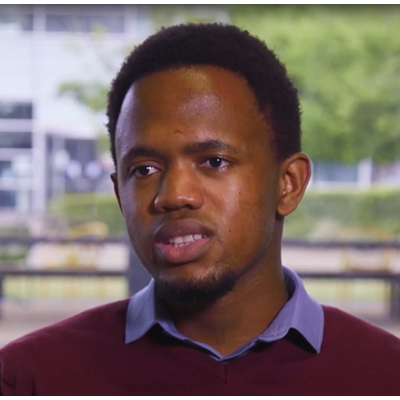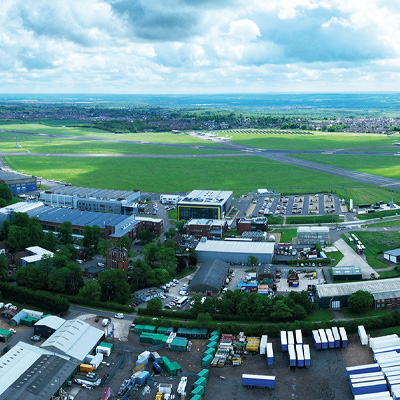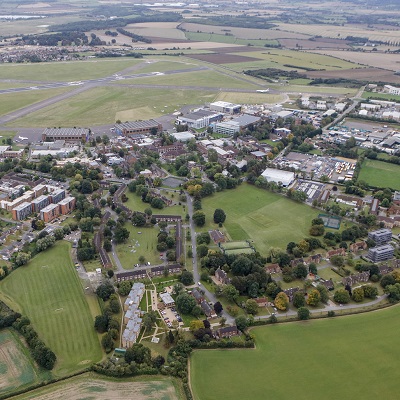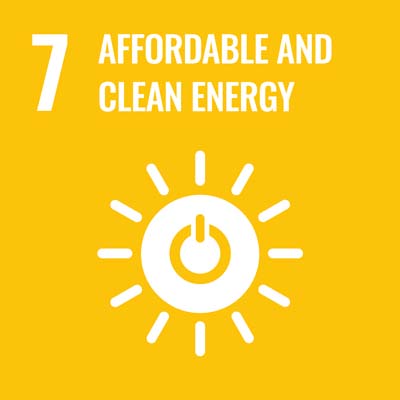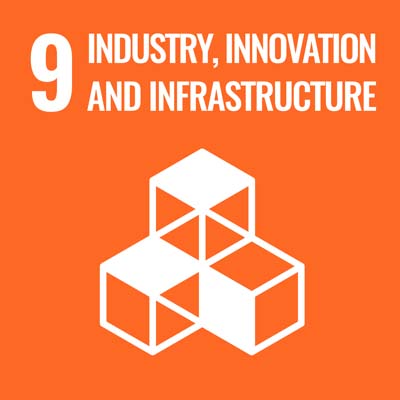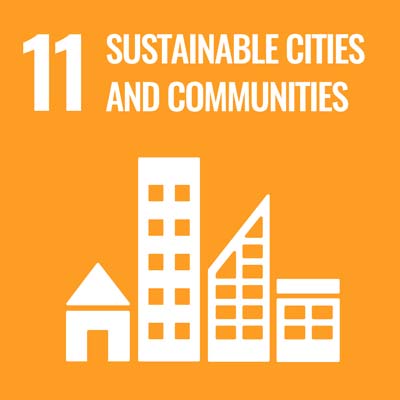Ways to meet us
Study Renewable Energy at Cranfield and tackle climate change head on
This Renewable Energy MSc will equip you with the advanced knowledge and skills to develop a successful career in the rapidly growing renewable energy sector. A choice of study routes enables you to specialise in developing the latest technical skills required to design renewable energy systems, or to focus on managing renewable engineering projects and systems. Ranked in the UK top 5 for mechanical engineering, Cranfield offers a unique, postgraduate-only environment, unique engineering-scale facilities for the development of efficient renewable energy technologies with low CO2 emissions and a teaching team with extensive experience of solving real world renewable energy challenges.Overview
- Start dateFull-time: October, part-time: October
- DurationOne year full-time, two-three years part-time
- DeliveryTaught modules 80 credits/800 hours, Group projects 40 credits/400 hours, Individual project 60 credits/600 hours
- QualificationMSc, PgDip, PgCert
- Study typeFull-time / Part-time
- CampusCranfield campus
Who is it for?
This postgraduate degree in renewable energy is designed for engineering, maths or science graduates who wish to develop a successful and rewarding career in the renewable energy sector. It will equip you with the multidisciplinary skills required to design, optimise and evaluate the technical and economic viability of renewable energy schemes. The engineering route will provide you with the technical skills required to design renewable energy systems, including finite element analysis (FEA), computational fluid dynamics (CFD), and technology lifecycle management (TLM). Alternatively, you can specialise in managing renewable energy projects and systems, focusing on topics such as health and safety and environment, energy entrepreneurship and asset management.
Your career
With the current global focus on developing low carbon energy production and renewable energy technologies, you can expect to be highly sought after by employers. Equipped with the expertise to analyse current and future energy needs and to design and implement appropriate solutions, a wide range of careers are open to you, as a professional scientist or engineer across the full breadth of industrial and public sector organisations involved in renewable energy.
Examples of roles our alumni have gone into:
- Energy Transition Engineer/Industrial Engineer/Manufacturing Engineer/Design Engineer/Hydrogen Energy Engineer/Nuclear Power Engineer
- PV Business Development Analyst/Asset Management Analyst/GIS Analyst
- Renewable Energy Consultant/Senior Energy Strategy Consultant/Energy Consultant
- Wind Development Officer
- Customer Service Manager
- Environmental Scientist
In their new careers, our graduates have worked work on a diverse and exciting range of renewable energy projects, including:
- Design of new renewable energy solutions,
- Testing and certification of renewable energy technologies,
- Operation and maintenance of renewable energy technologies,
- Technical-environmental analysis of novel renewable energy solutions, such as floating wind turbines and wave energy converters.
Examples of organisations that have employed our graduate of this course:
- E.ON (UK)
- EDF UK (UK)
- Siemens Gamesa (UK)
- Atkins (UK)
- Network Rail (UK)
- KrakenFlex (Octopus Energy) (UK)
- Accenture (UK)
- Scottish Renewables (UK)
- Stellar Engineering (UK)
- RED Engineering (UK)
Cranfield Careers and Employability Service
Cranfield’s Career Service is dedicated to helping you meet your career aspirations. You will have access to career coaching and advice, CV development, interview practice, access to hundreds of available jobs via our Symplicity platform and opportunities to meet recruiting employers at our careers fairs. Our strong reputation and links with potential employers provide you with outstanding opportunities to secure interesting jobs and develop successful careers. Support continues after graduation and as a Cranfield alumnus, you have free life-long access to a range of career resources to help you continue your education and enhance your career.
Why this course?
Governments around the world are establishing increasingly ambitious targets for renewable energy use. For example, by 2030 China plans to increase the share of non-fossil fuels in its total energy mix to 20% and Europe to 30%. The Renewable Energy MSc will prepare you for an exciting and rewarding career helping to address the global challenge of moving to a low carbon economy.
- Study at a top 5 ranked UK university for mechanical, aeronautical and manufacturing engineering,
- Choose to acquire the technical skills required to design renewable energy systems, or focus on developing the capability to manage renewable engineering projects and systems,
- Participate in individual and group projects focused on your personal interests and career aspirations,
- Learn from lecturers with extensive, current experience of working with industry on solving real world energy challenges,
- Benefit from engineering-scale facilities for the development of efficient technologies with low CO2 emissions.
This MSc is supported by our team of professorial thought leaders, including Professor Upul KG Wijayantha, who is influential in the field of renewable energy, and an integral part of this MSc.
Informed by industry
The Renewable Energy MSc is closely aligned with industry to ensure that you are fully prepared for your new career.
- Cranfield’s long-standing strategic partnerships with prominent players in the energy sector ensures that the course content meets the needs of global employers in the renewable energy sector,
- The teaching team are heavily involved in industrially funded research and development, enabling you to benefit from real-world case studies throughout the course,
- An industrial advisory board for the course scrutinises course content and ensures its relevance to the needs of global employers,
- State-of-the-art technical modules cover a range of industry-relevant topics including Renewable Engineering Technologies, Engineering Stress Analysis: Theory and Simulations, Fluid Mechanics and Loading, Design of Offshore Energy Structures,
- Management modules cover essential industry relevant topics including Energy Entrepreneurship, Energy Economics and Policy and Sustainability and Environmental Assessment.
Course content is regularly reviewed by the Industrial Advisory Panel. Comprising senior leaders from Cranfield’s long-standing industrial partners, the panel ensures that the course equips graduates with the very latest knowledge and skills required global employers. These industry experts include...
Dr Daniel Milano - Senior Engineer, Floating Wind, ORE Catapult
Dr Peter Clough - Managing Consultant, ERM
Dr Chet Biliyok - Technical Director, Energy Transition Projects, Petrofac
Dr Robert Edwards -Chief Scientific Officer, Solar Polar Ltd
Mr Lucio Agueda-Galan, Offshore Wind Development Engineer, Scottish Power
Course details
The taught programme for the Renewable Energy MSc comprises eight modules and is generally delivered from October to February. Each module is typically delivered over two weeks. Generally, the first week involves intensive teaching while the second week has fewer teaching hours to allow time for more independent learning and completion of the assessment. Students on the part-time programme will complete all the modules based on a flexible schedule that will be agreed with the Course Director.
The MSc year consists of three main elements; the taught modules, the group project and individual project, these are shown in the diagram below:
Course delivery
Taught modules 80 credits/800 hours, Group projects 40 credits/400 hours, Individual project 60 credits/600 hours
Group project
The group project is an applied, multidisciplinary, team-based activity. Often solving real-world, industry-based problems, you and your fellow students will have the opportunity to take responsibility for a consultancy-type project while working under academic supervision. The group project is highly valued by employers for developing your ability to work within agreed objectives, deadlines and budgets, whilst developing transferable skills such as teamwork, self-reflection and effective communication.
Recent group projects include:
Individual project
Selected in consultation with the Thesis Co-ordinator and Course Director, the individual project offers the opportunity for you to focus on an area of particular interest and of direct relevance to your career aspirations. It will enable you to develop independent research skills, to think and work in an original way, contribute to knowledge, and overcome real-world problems – particularly as many of the projects are supported by external organisations.
Recent individual projects include:
- Modelling, structural analysis, and optimisation of a 10-metre solar concentrating mirror array for industrial process heat applications,
- Pollution modelling and mitigation strategies through renewable energy technologies in Mexico City,
- Floating offshore wind turbines and support foundations in ultra deep waters,
- CFD study of a ducted wind turbine,
- Design characterisation of a horizontal plate wave energy converter,
- Fatigue damage analysis of offshore wind monopiles.
Modules
Keeping our courses up-to-date and current requires constant innovation and change. The modules we offer reflect the needs of business and industry and the research interests of our staff and, as a result, may change or be withdrawn due to research developments, legislation changes or for a variety of other reasons. Changes may also be designed to improve the student learning experience or to respond to feedback from students, external examiners, accreditation bodies and industrial advisory panels.
To give you a taster, we have listed the compulsory and elective (where applicable) modules which are currently affiliated with this course. All modules are indicative only, and may be subject to change for your year of entry.
Course modules
Engineering route compulsory modules
Artificial Intelligence for Sustainability
| Aim |
|
|---|---|
| Syllabus |
|
| Intended learning outcomes |
On successful completion of this module you should be able to:
|
Energy Entrepreneurship
| Module Leader |
|
|---|---|
| Aim |
In this world of downsizing, restructuring and technological change, notions of traditional careers and ways of creating value have all been challenged. People are depending more upon their own initiative to realise success. Never, it seems, have more people been starting their own companies than now, particularly to exploit the World Wide Web. There’s no single Government (in either the developed or the developing world), which is not paying at least lip service to enterprise development. The aim of this module is to provide you with knowledge and skills relevant for starting and managing new ventures across the entrepreneurial life cycle. Moreover, it will prepare you on how to prepare a business pitch to an investor. |
| Syllabus |
|
| Intended learning outcomes |
On successful completion of this module you should be able to:
|
Renewable Energy Technologies 1
| Module Leader |
|
|---|---|
| Aim |
To fully comprehend and work with renewable energy systems, it is necessary to first understand the underlying operational principles of the various technologies.
This module is designed to offer an introduction to renewable energy technologies and their influence on global and national energy systems. Its aim is to provide the basics necessary to evaluate the performance of solar (both PV and CSP), wind, wave and tidal, geothermal, and hydro-electricity technologies. By the end of the module, students will have a deeper understanding of the various renewable technologies and be in an excellent position to build on this knowledge throughout the rest of the course. There will also be an opportunity to visit Cranfield's own megawatt-scale PV field to experience an operational plant first-hand.
|
| Syllabus |
|
| Intended learning outcomes |
On successful completion of this module you should be able to:
|
Renewable Energy Technologies 2
| Module Leader |
|
|---|---|
| Aim |
Understanding what happens to the energy once it's produced is vital to gaining a comprehensive grasp of renewable energy technologies. Energy storage is a crucial component in maximizing the potential of renewables, especially given the intermittency of most renewable sources.
This module will provide detailed knowledge and practical experience in the topics of energy storage and energy distribution, which are the critical components in the development and implementation of renewable energy. Lectures and case studies, field visits and laboratory practise will provide students with knowledge and experience in designing and analysing energy storage and distribution solutions in renewable energy infrastructures.
|
| Syllabus |
Energy storage materials and technologies Energy distribution Energy recovery |
| Intended learning outcomes |
On successful completion of this module you should be able to:
|
Solar Energy Engineering
| Module Leader |
|
|---|---|
| Aim |
|
| Syllabus |
Photovoltaics:
Concentrating Solar Power
We will also cover:
|
| Intended learning outcomes |
On successful completion of this module you should be able to:
|
Fluid Mechanics and Loading
| Module Leader |
|
|---|---|
| Aim |
This module aims to provide you with a theoretical and applied understanding of fluid mechanics and fluid loading on structures. |
| Syllabus |
Principles of fluid dynamics: Dynamics of floating bodies: from simple hydrostatics to complex dynamic response in waves.
|
| Intended learning outcomes |
On successful completion of this module you should be able to:
|
Elective modules
One of the modules from the following list needs to be taken as part of this course.
Energy Systems Case Studies
| Module Leader |
|
|---|---|
| Aim |
|
| Syllabus |
Defining the scope of the case study.
Develop a project plan, aim and objectives to solve the case study problem
Multi-criteria decision analysis [MCDA] applied to energy technologies to identify the most preferred technology.
Public engagement strategies and the planning process involved in developing energy technologies
|
| Intended learning outcomes |
On successful completion of this module a student should be able to:
|
Short Research Project
| Module Leader |
|
|---|---|
| Aim |
The purpose of this module is to provide you with experience of scoping, designing and delivering of a short research project. This requires an understanding of the background literature, as well as relevant analysis techniques. You will need to agree the project scope early on and deliver the project within the two weeks of the module. The module will allow you to draw on the experience and learning from the previous modules. |
| Syllabus |
|
| Intended learning outcomes |
On successful completion of this module you should be able to:
|
Elective modules
One of the modules from the following list needs to be taken as part of this course.
Hydrogen Production
| Module Leader |
|
|---|---|
| Aim |
|
| Syllabus |
|
| Intended learning outcomes |
|
Wind Engineering
| Module Leader |
|
|---|---|
| Aim |
This module provides a rigorous introduction to wind engineering, focusing on the analytical methods and computational tools for wind turbine design and evaluation. It places specific emphasis on developing practical skills in CFD simulation for aerodynamic analysis and addressing key challenges in vibration and acoustics. |
| Syllabus |
|
| Intended learning outcomes |
On successful completion of this module you should be able to:
|
Management route compulsory modules
Energy Economics and Policy
| Module Leader |
|
|---|---|
| Aim |
|
| Syllabus |
|
| Intended learning outcomes |
On successful completion of this module you should be able to:
|
Energy Entrepreneurship
| Module Leader |
|
|---|---|
| Aim |
In this world of downsizing, restructuring and technological change, notions of traditional careers and ways of creating value have all been challenged. People are depending more upon their own initiative to realise success. Never, it seems, have more people been starting their own companies than now, particularly to exploit the World Wide Web. There’s no single Government (in either the developed or the developing world), which is not paying at least lip service to enterprise development. The aim of this module is to provide you with knowledge and skills relevant for starting and managing new ventures across the entrepreneurial life cycle. Moreover, it will prepare you on how to prepare a business pitch to an investor. |
| Syllabus |
|
| Intended learning outcomes |
On successful completion of this module you should be able to:
|
Engineering Design and Project Management
| Module Leader |
|
|---|---|
| Aim |
|
| Syllabus |
Project Management, |
| Intended learning outcomes |
On successful completion of this module you should be able to:
|
Health, Safety and Environmental Risk
| Module Leader |
|
|---|---|
| Aim |
|
| Syllabus |
|
| Intended learning outcomes |
On successful completion of this module you should be able to:
|
Renewable Energy Technologies 1
| Module Leader |
|
|---|---|
| Aim |
To fully comprehend and work with renewable energy systems, it is necessary to first understand the underlying operational principles of the various technologies.
This module is designed to offer an introduction to renewable energy technologies and their influence on global and national energy systems. Its aim is to provide the basics necessary to evaluate the performance of solar (both PV and CSP), wind, wave and tidal, geothermal, and hydro-electricity technologies. By the end of the module, students will have a deeper understanding of the various renewable technologies and be in an excellent position to build on this knowledge throughout the rest of the course. There will also be an opportunity to visit Cranfield's own megawatt-scale PV field to experience an operational plant first-hand.
|
| Syllabus |
|
| Intended learning outcomes |
On successful completion of this module you should be able to:
|
Renewable Energy Technologies 2
| Module Leader |
|
|---|---|
| Aim |
Understanding what happens to the energy once it's produced is vital to gaining a comprehensive grasp of renewable energy technologies. Energy storage is a crucial component in maximizing the potential of renewables, especially given the intermittency of most renewable sources.
This module will provide detailed knowledge and practical experience in the topics of energy storage and energy distribution, which are the critical components in the development and implementation of renewable energy. Lectures and case studies, field visits and laboratory practise will provide students with knowledge and experience in designing and analysing energy storage and distribution solutions in renewable energy infrastructures.
|
| Syllabus |
Energy storage materials and technologies Energy distribution Energy recovery |
| Intended learning outcomes |
On successful completion of this module you should be able to:
|
Sustainability and Environmental Assessment
| Module Leader |
|
|---|---|
| Aim |
Environmental impact assessment and life cycle analysis are important tools for evaluating the sustainability of complex renewable energy technologies and industrial processes or products. The tools and concepts taught in this module will enable you to assess the sustainability of a case study from an environmental standpoint. Analysis of relevant case studies to demonstrate the assessment process, including how to account for uncertainty and sensitivity analysis. |
| Syllabus |
Environmental Impact Assessment, |
| Intended learning outcomes |
On successful completion of this module you should be able to:
|
Elective modules
One of the modules from the following list needs to be taken as part of this course.
Energy Systems Case Studies
| Module Leader |
|
|---|---|
| Aim |
|
| Syllabus |
Defining the scope of the case study.
Develop a project plan, aim and objectives to solve the case study problem
Multi-criteria decision analysis [MCDA] applied to energy technologies to identify the most preferred technology.
Public engagement strategies and the planning process involved in developing energy technologies
|
| Intended learning outcomes |
On successful completion of this module a student should be able to:
|
Short Research Project
| Module Leader |
|
|---|---|
| Aim |
The purpose of this module is to provide you with experience of scoping, designing and delivering of a short research project. This requires an understanding of the background literature, as well as relevant analysis techniques. You will need to agree the project scope early on and deliver the project within the two weeks of the module. The module will allow you to draw on the experience and learning from the previous modules. |
| Syllabus |
|
| Intended learning outcomes |
On successful completion of this module you should be able to:
|
Teaching team
You will be taught by industry-active research academics from Cranfield with an established track record, supported by visiting lecturers from industry. The Admissions Tutor and Course Director is Dr Peter King and Dr Heather Almond is Deputy Course Director.
Accreditation
This MSc course is accredited by: The Institution of Mechanical Engineers (IMechE) on behalf of the Engineering Council as further learning for CEng until August 2026.
Candidates must hold a CEng accredited BEng/BSc (Hons) undergraduate first degree to comply with full CEng registration requirements. Students completing an accredited degree are deemed to have met part or all of the academic requirements for registration as a Chartered or Incorporated Engineer and are in a strong position to move on to achieve professional engineering status after a period of initial professional development in industry. Please note accreditation applies to the MSc award, PgDip and PgCert (if offered) do not meet in full the further learning requirements for registration as a Chartered Engineer.
How to apply
Click on the ‘Apply now’ button below to start your online application.
See our Application guide for information on our application process and entry requirements.
I believe Cranfield really set me up to just transition straight into the work-life culture. I can talk from experience, having been working for the past six months as an Energy Consultant for Ricardo. It's almost like I am just continuing from Cranfield into my work environment. So, it was very similar. The processes, the tight deadlines, the analytical processes to solving critical world problems.
I feel very proud, because of the status Cranfield has around the world, just being able to call myself an alumni and being part of this prestigious university.
The advice I'll give to future students is, come here with a focus mindset, take a leap of faith, enjoy the environment and you will probably have the best year of your life and set you up for the next phase of your life.
This course has been able to give me the opportunity to work on real-world problems. For example, we get case studies for places like, Luton Airport or Universal Studios Bedford, so you have the experience in dealing with real-world stakeholders. This gives you hands-on learning experience.I would have to describe Cranfield University in three words, I would say peaceful, focused and impact driven.
Pursuing an MSc in Renewable Energy at Cranfield University was one of the best decisions I've made. The year was truly enriching, with the highlight being the coursework assignments that tackled real-world problems. This approach made me industry-ready and instilled a sense of confidence in my abilities. The program's focus on practical applications has prepared me to contribute meaningfully towards creating a more sustainable world. Cranfield's emphasis on connecting academic knowledge with industry challenges has equipped me with the skills and insights necessary to make a real impact in the renewable energy sector.
The highlight for me was definitely the group project – working in relation to wind turbines. We studied a new component used in the base and the foundations of wind turbine structures and it was just a fantastic experience. I worked with some really great fellow students and took on a bit of a leadership role that I found I really enjoyed.
Renewable energy has always been an interest of mine. After seven years of working in the industry I needed a change, so I thought coming to Cranfield to study renewable energy would be the perfect way to refresh my knowledge to take my career in a new and exciting direction.
If you get the opportunity to come to Cranfield, you should grab it with both hands. You should challenge yourself and not stay in your comfort zones; get to experience the different cultures and get to experience the diversity. Cranfield in a few words to me is innovative, diverse, peaceful and amazing.




